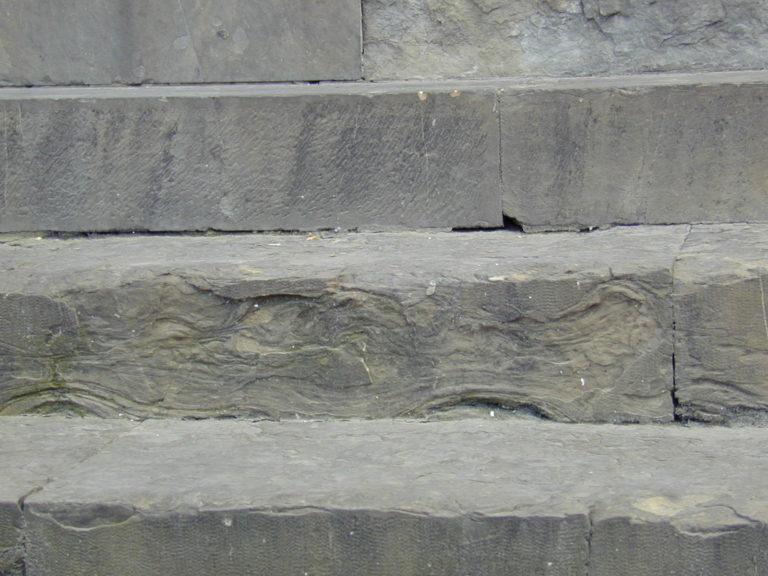
Lithotype
Pietraforte Sandstone
Common names
Pietraforte
Rock classification
Sedimentary rock
Firenze (mainly in the southern area) and Province: Giardino di Boboli, Viale Galileo, Bellosguardo Hill, Ema Valley.
The rock is a turbidite sandstone belonging to the Supergruppo della Calvana, in the external Ligurian Domain, dated to the Late Cretaceous. The sandstone is feldspathic, carbonatic, quartz-rich in composition; it outcrops in thin layers (20-100 cm) that alternate with silty argillites. The sandstone is classified as a lithic arenite.
This rock was the most used building material in the medieval Firenze in ashlars of variable sizes. The use, also for road paving, continued during the Renaissance.
It is mainly constituted by quartz granules, feldspars, mica, dolomite, and low amounts of calcite and clay minerals.
Macroscopic description
Fine-grained sandstone, gray-bluish in fresh cut, ocher for alteration. It is characterized by the presence of convoluted laminations and calcite veins. It is a hard, compact, not-polishable rock with low-medium porosity.
Microscopic description
The granules are constituted by quartz, feldspars, fragments of dolomite rocks, low-grade metamorphic rocks and silica-rich igneous effusive rocks. The matrix consists of prevalent micritic calcite and clay minerals. Calcitic cement is also present.

